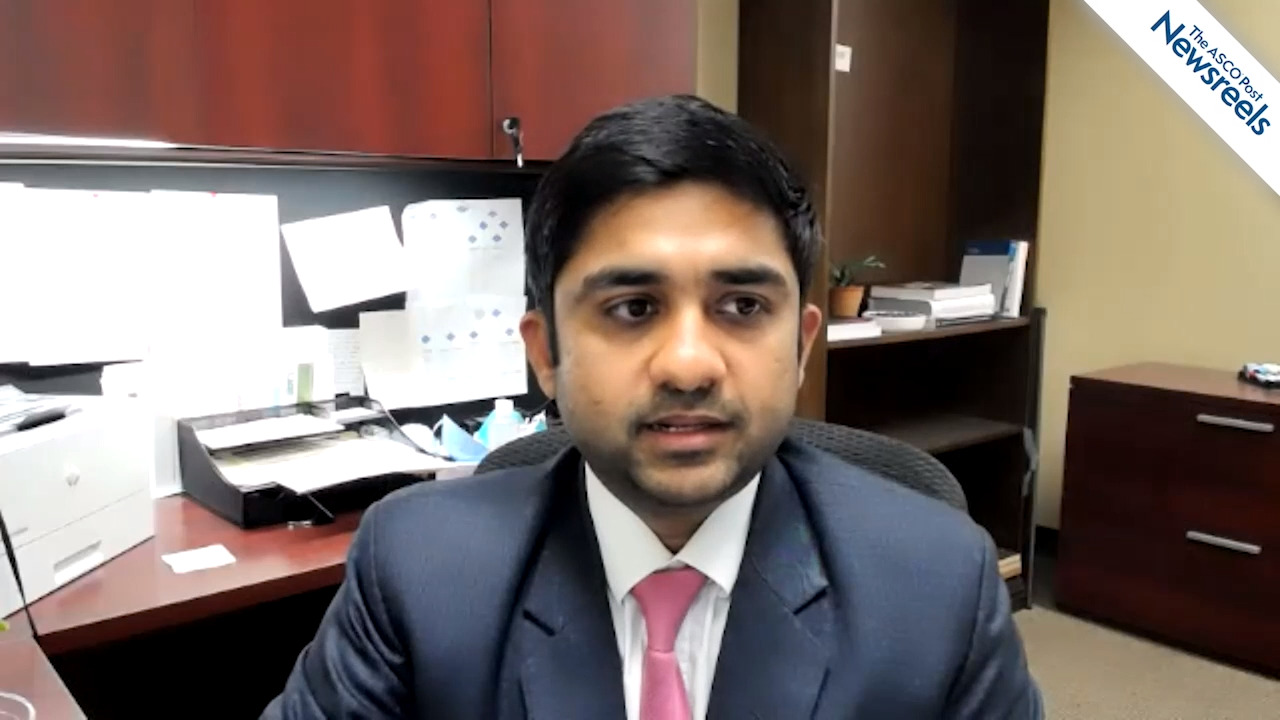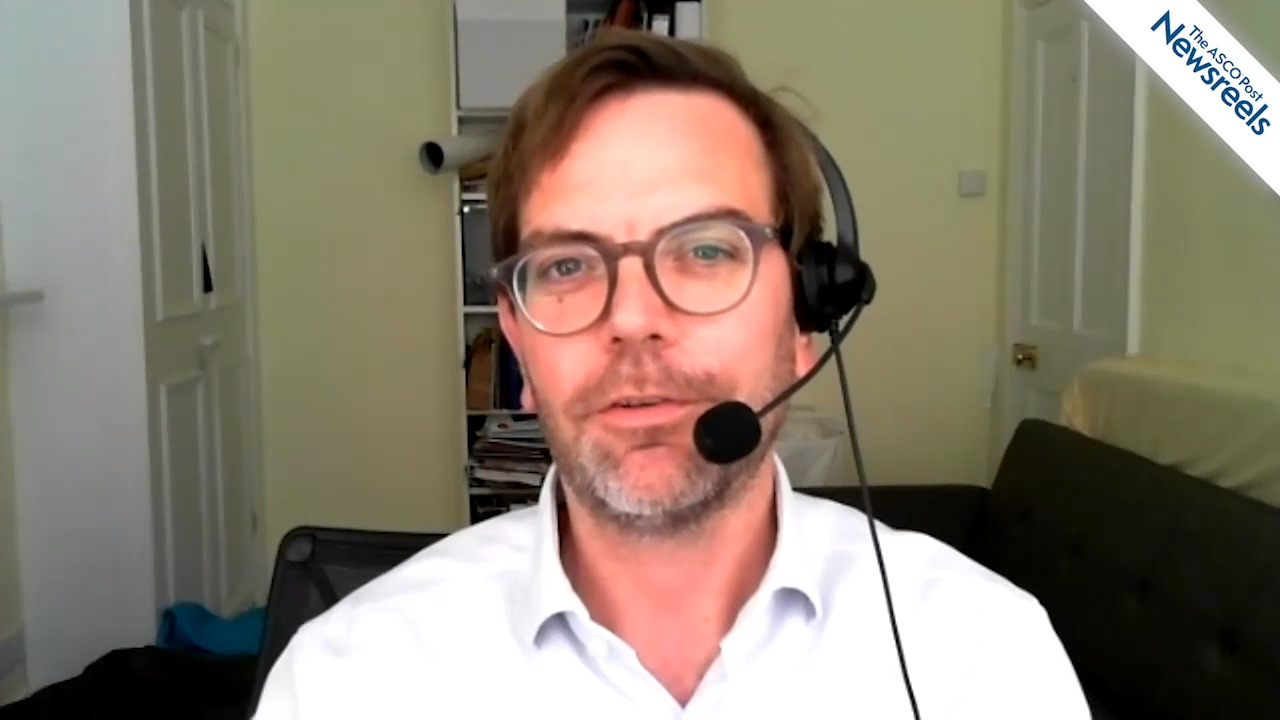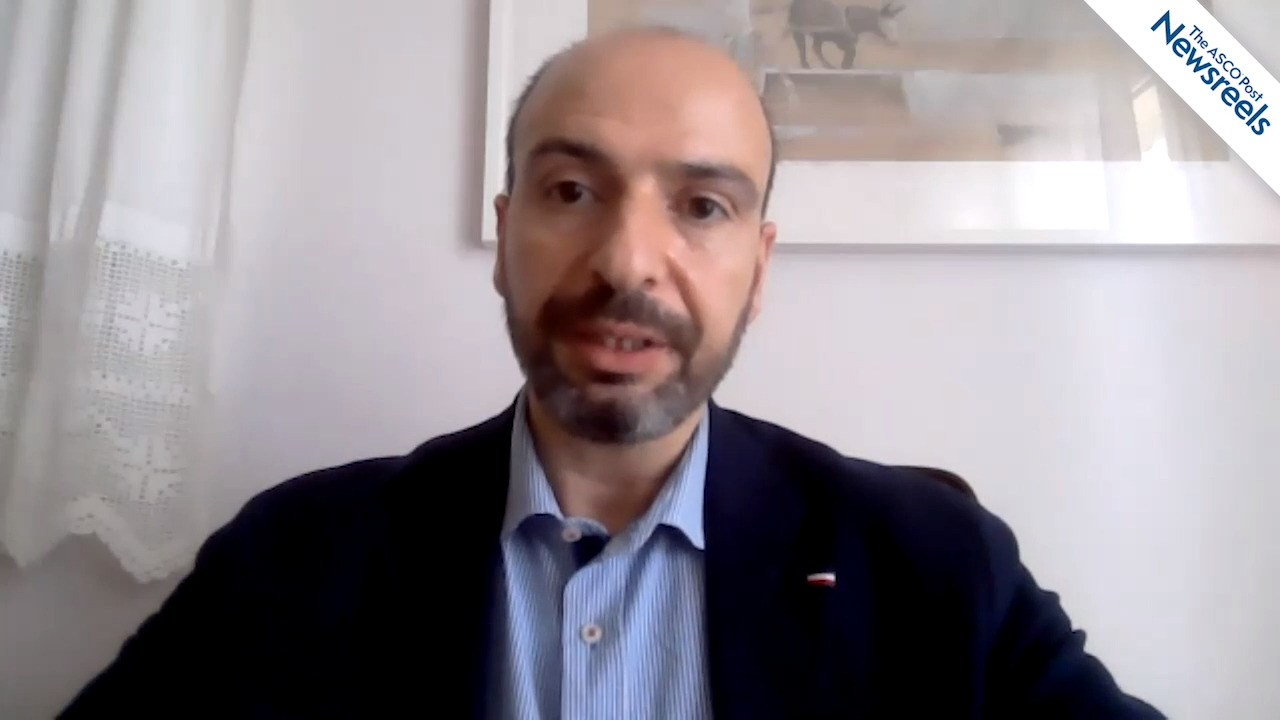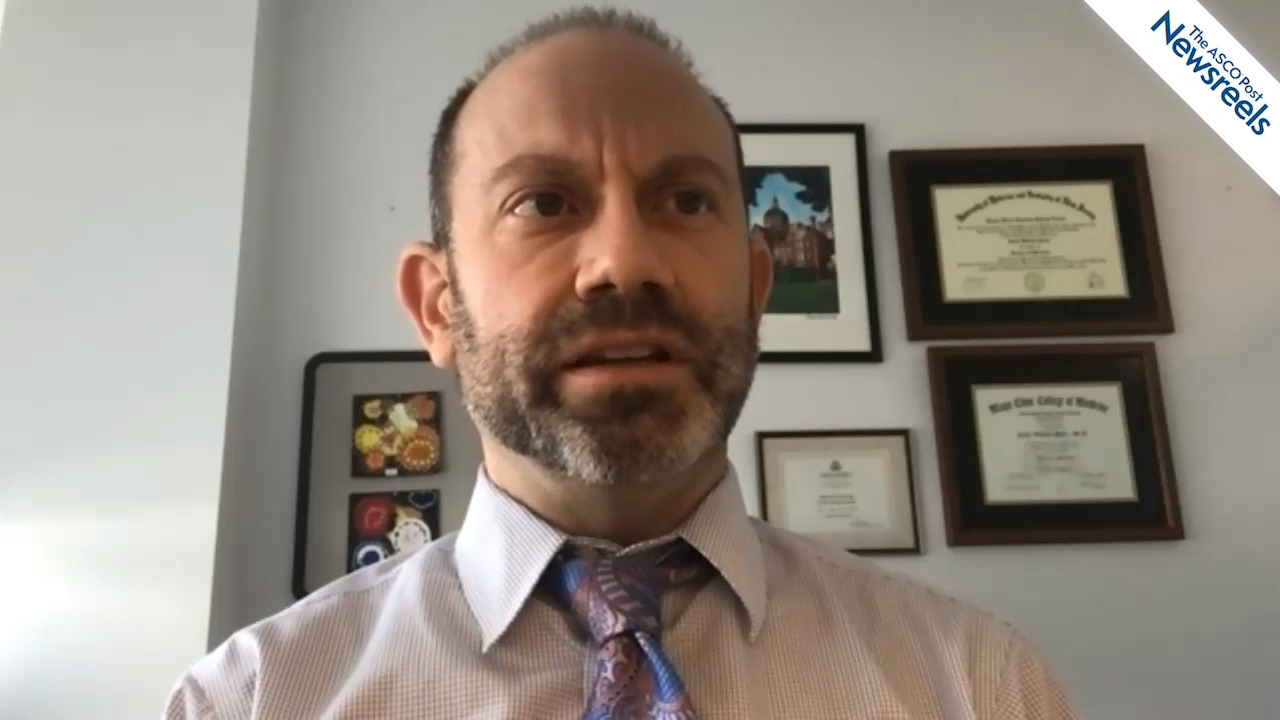Martin H. Dreyling, MD, PhD, on Follicular Lymphoma: Safety and Efficacy of Tisagenlecleucel
EHA 2021 Virtual Congress
Martin H. Dreyling, MD, PhD, of University Hospital Munich Grosshadern Klinikum, discusses phase II results from the ELARA trial, which suggests tisagenlecleucel may be a promising immunotherapy for adults with relapsed or refractory follicular lymphoma (Abstract S210).
The ASCO Post Staff
Gaurav Goyal, MD, of the University of Alabama at Birmingham, reports on findings from a large multi-institutional database study, which showed there was no apparent difference in overall survival between R-CHOP and R-EPOCH among patients with advanced-stage MYC-rearranged, double-hit, or triple-hit diffuse large B-cell lymphoma. Further studies are needed for better risk stratification to optimize outcomes (Abstract S224).
The ASCO Post Staff
Martin Kaiser, MD, of The Institute of Cancer Research and Royal Marsden Hospital, discusses findings from the UK OPTIMUM/MUKNINE trial on the depth of response and minimal residual disease status in patients with ultra-high–risk newly diagnosed multiple myeloma and plasma cell leukemia who were treated with augmented autologous transplant and daratumumab plus cyclophosphamide, bortezomib, lenalidomide, and dexamethasone (Abstract S181).
The ASCO Post Staff
Martin Hutchings, MD, PhD, of Copenhagen University Hospital, discusses a 5-year update of the phase III ECHELON-1 study, which suggested brentuximab vedotin plus doxorubicin, vinblastine, and dacarbazine benefits patients with previously untreated stage III or IV classical Hodgkin lymphoma (Abstract S205).
The ASCO Post Staff
Efstathios Kastritis, MD, of the University of Athens, discusses updated phase III results from the ANDROMEDA study of patients with newly diagnosed light chain amyloidosis. The trial further supports the use of daratumumab plus VCd (bortezomib, cyclophosphamide, and dexamethasone), which was shown to be clinically superior to VCd alone (Abstract S189).
The ASCO Post Staff
Keith W. Pratz, MD, of the University of Pennsylvania, discusses the outcomes of patients with acute myeloid leukemia who took part in the VIALE-A trial and were treated with venetoclax and azacitidine. The patients had achieved both composite complete remission and measurable residual disease of < 10-3 (Abstract S137).





